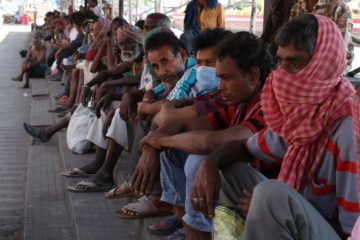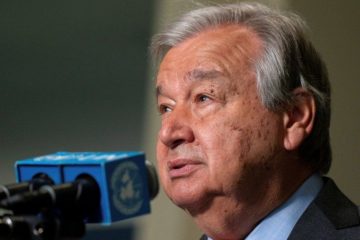On December 19th, the French ‘Cour de Justice de la République’, found Ms. Christine Lagarde, current Director of the IMF, guilty of negligence in an arbitration dispute[1]. In 1993, a legal battle started between Bernard Tapie, a businessman owner of Adidas, and Crédit Lyonnais, a French bank in which the State had stakes, regarding the terms of the sale of the sportswear brand. The case remained unsettled for more than a decade, so that in 2007, the French Minister of the Economy, Ms. Lagarde, sent the case to a private arbitration authority. The entity ruled in favor of Mr. Tapie, forcing the state to pay more than 400 million euros in damages and interest. The Court of Justice considered that, although she was not responsible for the outrageous outcome of this arbitration that involved conflict of interest between the parties, Ms. Lagarde should have appealed the decision. What partly saved Christine Lagarde from a sentence or a fine is her major international position as head of the IMF. In a statement released after the Court’s decision, the Executive Board, representing the 189 member states, reaffirmed its unconditional support to Ms. Lagarde, stating that it had “full confidence in the Managing Director’s ability to continue to effectively carry out her duties.” [2]
However, the timing is bad for this court ruling, which puts a shadow on Ms. Lagarde’s well-preserved reputation. The IMF, already virulently attacked by the public, NGOs and member governments themselves, certainly did not need another scandal to tarnish its public image. Dominique Strauss-Kahn’s scandalous adventures in a New-York hotel in 2011 that made the headlines of every newspaper remain in memories.[3] Charged (but not convicted) with sexual assault, ‘DSK’ said goodbye to his political career, letting the IMF struggle to make this embarrassing episode go away. Let us also recall that his predecessor, Rodrigo Rato, is now judged in Spain for embezzlement of funds during his time at the head of major Spanish banks.[4] With three Managing Directors of the IMF in the accused dock, are the high ethical standards the Fund deeply cherishes credible? Isn’t it paradoxical that the institution that stands for intransigence and transparency embodies such counter-exemplar values?
Such media-exposed episodes like Ms. Lagarde’s reflect a problem inherent to the Fund. It seems outrageous for the IMF to ask countries to fight corruption if it itself displays a lack of transparency and integrity. Almost since its creation, the Fund has been widely criticized for its ‘deficit’ of legitimacy and effectiveness, and for failing to achieve the goals it set at its creation at Bretton-Woods.[5] During the 1997 Asian financial crisis, it was accused of having its share of responsibility and for responding inadequately to the economic situation. One of the main targets of criticism was the tight conditionality attached to its structural adjustment loans that made it worse for countries struggling with the crisis to recover.[6] Although its goal is to promote economic growth and development, the financial austerity and strict reforms imposed by the Fund are often judged incompatible with developing countries’ economies. As a few Western economic experts hold the fate of half of the world’s economies in their hands, the elitist expert-based legitimacy of the Fund has often been questioned. [7]
In 2001, a watchdog unit, the Independent Evaluation Office (IEO), was set up with a mandate to evaluate the Fund’s decision-making, greatly questioned after the Asian crisis. Despite its autonomy, the IEO became increasingly pressured by the IMF to avoid releasing embarrassing reports.[8] Back in 2012, as the organization started investigating on the quality of the IMF’s expertise in the Eurozone, tensions began to appear between the IEO, who requested access to internal documents, and senior Fund officials who publicly claimed to fully cooperate with the watchdog. The peak of opposition to the release of documents came from the European Department, responsible for the bailouts of Greece, Ireland and Portugal. In July 2016, the IEO published an 86-pages report of the IMF’s performance during the European Debt Crisis. It is particularly virulent on the way the IMF dealt with Greece’s Debt, judging its response came too late and was largely insufficient. Indeed, it emphasizes the Fund’s incapacity to draw conclusions from the early distress calls about Greece and prevent the crisis.[9]
In addition to effectiveness criticisms, the IMF’s governance is the main target of attacks, due to its inherently unfair structure. Voting quotas, which determine members’ weight in the decision-making, are based on an obscure combination of financial contribution and relative position in the world economy. Unsurprisingly, developed countries have the lion share of votes, especially the United States, major contributor of resources, who holds 16% of total votes alone.[10] Consequently, the IMF has suffered a backlash from emerging countries who are fighting for a bigger share in the decision-making process. Indeed, with the rise of BRICS, the IMF’s leading countries of Bretton-Woods are now competing with former developing countries such as China or Brazil, which makes the legitimacy of a governance structure favoring industrialized economies quite questionable. There is a need to provide more effective voice and representation for developing countries, which now represent a much larger portion of world economic activity since 1944, when the IMF was created, argued Joseph Stiglitz, Nobel Prize of Economy.[11]
There have been several attempts by successive leaders such as Horst Köhler or Anne Krueger to reform the the institution. Christine Lagarde, who was re-elected to a second five-year term in 2016, acted in the continuity of its predecessors, promising the Fund would seek more transparency, less bureaucracy, openness to the world and representativeness of its members. Public demonstrations of this commitment were numerous to prove the good faith of the Fund. In October, for example, Christine Lagarde took part in meetings with NGOs, including panels on income inequality, civil society participation, or women’s rights.[12]A reform of the quota system, started in 2010, sought to increase the quotas of emerging countries such as the BRICS by 9%. After years of negotiations, it came into effect in January 2016, during the 14th General Quota Review. This should have a significant impact on the power distribution in the Fund as for the first time in history, Brazil, China, India, and Russia will be among the 10 largest voting members in terms of the IMF. The quota increase implies a significant permanent capital resources increase (to about US$659 billion), which increases its lending capacity.[13]
In an increasingly globalized world where financial and debt crises blossom, there are high stakes in keeping the IMF alive. Thus, the full support from Executive Directors to Christine Lagarde following her recent trial is not surprising. A sudden change in leadership would only make more fragile an organization that is struggling to regain full credibility to the eyes of its members and the public. The Fund still has a lot of challenges to face. With Brexit, the rise of populist parties around the world, the uncertain future of the Eurozone and the recent election of a world trade opponent, Donald J. Trump, at the head of the first resources-contributing nation of the IMF, Ms. Lagarde’s unquestionable qualifications, experience, and diplomacy are more than necessary. Despite the criticisms, there is only little doubt that the IMF will remain a powerful institution in the future. Members have an interest in remaining in the IMF; at a critical point in the global economy, the need for a lender of last resort and a financial surveillance body to get through hard times is more important than ever.
–
[1] Landon, T. Jr, Alderman, L. Breeden, A. Dec 19, 2016. ‘IMF stands by Christine Lagarde, convicted of negligence’ The New York Times http://www.nytimes.com/2016/12/19/business/imf-trial-christine-lagarde-france-verdict.html
[2] IMF Communications Department, Dec 19, 2016. ‘Statement by the IMF executive Board on legal proceedings in France relating to the managing director’, Press Release No.16/570 http://www.imf.org/en/news/articles/2016/12/19/pr16570-statement-by-the-imf-executive-board-on-legal-proceedings-in-france-relating-to-the-md
[3] The Economist, Feb 14, 2016. ‘The DSK trial: Bad Days in Lille’
[4] Cécile Thibaud, Sep 27, 2016 ‘Rodrigo Rato, l’ancien president du FMI, sur le banc des accusés’ Les Échos http://www.lesechos.fr/finance-marches/banque-assurances/0211330251241-rodrigo-rato-lancien-president-du-fmi-sur-le-banc-des-accuses-2030479.php
[5] Torres, H. R. (2007). ‘Reforming the International Monetary Fund. Why its legitimacy is at stake.’ Journal of International Economic Law, 10 (3), 443-460.
[6] Lee, S. (2002). ‘ The International Monetary Fund’ New Political Economy, 7:2
[7] Best, J. (2007). ‘ Legitimacy Dilemmas: the IMF’s Pursuit of Country Ownership’ , Third World Quarterly, 28(3): pp.469-88.
[8] Landon, T Jr. Oct 20, 2016. ‘ IMF assessment hints at internal struggles’ The New York Times http://www.nytimes.com/2016/10/21/business/dealbook/imf-assessment-hints-at-internal-struggles.html
[9] Independent Evaluation Office of the IMF, July 8, 2016. ‘The IMF and the crises in Greece, Ireland, and Portugal: an evaluation by the Independent Evaluation Office’. http://www.ieo-imf.org/ieo/files/completedevaluations/EAC%20-%20Full%20Report.pdf
[10] IMF, Dec 22, 2016. ‘IMF Members’ Quotas and Voting Power, and IMF Board of Governors’ https://www.imf.org/external/np/sec/memdir/members.aspx#total
[11] Stiglitz, J.E & Members of a UN Commission on Financial Experts, (2010). ‘The Stiglitz Report: Reforming the International Monetary and Financial Systems in the Wake of the Global Crisis’. New York: The New Press.
[12] Landon, T. Jr, Alderman, L. Breeden, A. Dec 19, 2016. ‘IMF stands by Christine Lagarde, convicted of negligence’ The New York Times http://www.nytimes.com/2016/12/19/business/imf-trial-christine-lagarde-france-verdict.html
[13] IMF Communications Department, Jan 27, 2016. ‘Historic Quota and Governance Reforms Become Effective’ No.16/25 http://www.imf.org/external/np/sec/pr/2016/pr1625a.htm


